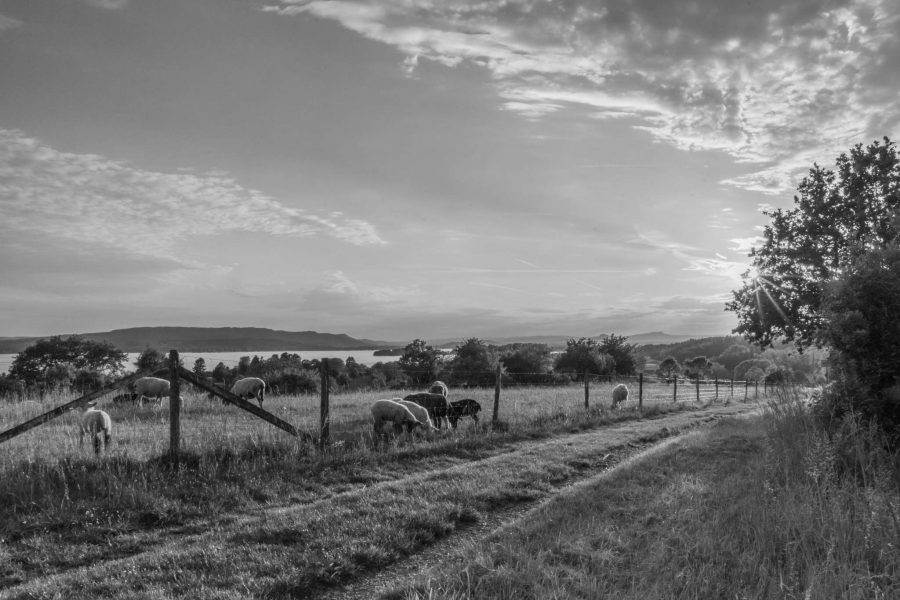Unleashing innovation is the key to a new, improved British agricultural policy
As discussions on the future of UK agriculture continue, many have given voice to their dreams – and indeed their nightmares. The vision of the Department for Environment, Food and Rural Affairs is for the highest standards to be applied to UK food, with productions systems highly sensitive to environmental needs, and public money supplied only for public goods. However, all this can be achieved only if such a model is made profitable for farmers. So, what are the key issues involved here and the possible directions?
It would be difficult to find anyone opposed to the idea of producing food to the highest standards and fully protecting our environment, but it is important to consider the costs and implications. The shift from land area support payment systems will increase food production costs and, if standards are not to diminish, that must inevitably result in higher food prices unless there is direct government intervention. Also, if there are to be increased environmental constraints on farming practice, productivity could fall, again increasing food prices. This will create a dilemma for retailers wanting to buy British but battling to keep their prices down. The pressure to import cheaper food, albeit at a lower standard, will be great – especially for discount retailers. The result would be unprofitable UK farming, with a consequent impact on our countryside and the environment.
What is the alternative? Well, we could retain a system of support similar to that existing in Europe now, known as the Common Agricultural Policy. This essentially subsidises farmers using area payments and a mixture of support measures in terms of the environment and economic development. While the CAP has long been a subject of debate because of the constant tinkering to its operation, resulting in a degree of incoherence, it has delivered an agricultural system that produces food to high standards and provides environmental benefits. Any loss in farm productivity has been offset by enabling farmers to afford to be less competitive globally, thanks to CAP support.
The UK government has been clear on its determination to phase out area payments, with public money supplied only for public goods. Yet isn’t the production of high-quality food affordable to the public also a public good? Furthermore, impacts from subsidy changes on agricultural productivity and certainty will inevitably affect willingness to invest in the sector.
It is clear there are no easy solutions. However, perhaps there is a way forward that can satisfy both politicians and the public. This involves putting in place systems and incentives that provide comparative advantage to UK farming over, in particular, our erstwhile European counterparts. It is a global approach that still delivers on reducing direct payments to farmers and maintaining standards. How? By enabling early access to new technologies, permitting the UK to fully exploit the amazing innovation available.
As an example, on pesticide use the current European system of authorisation and approval is highly politicised and very much hazard-based. We could adopt instead a more risk-based regulatory system. This by no means advocates declining safety standards – far from it – but it does imply that once a product is shown to be fully safe, principles of innovation have a stronger voice. After all, this is our approach in so many other areas of our lives. The household products we buy have a risk-based approach applied to them, and many would not get through the current European regulatory system for pesticides.
Another example is in the area of plant breeding. We have led the world on this, with the work of renowned organisations such as the former Plant Breeding Institute in Cambridge, which changed the face of cereal production levels in the 1970s, and now the excellent contributions of research centres such as Jealott’s Hill and Rothamsted. Yet the precautionary principle is having a negative effect here too: risk-based assessments show new innovation to be safe, but often political pressures hold things back. Again, the argument is not to reduce standards but to allow innovators to bring major benefits to our agriculture, our countryside and, yes, our environment. There is no reason to expect that environmental regulations would be eroded in the process; and indeed, a more productive agricultural system should inherently foster greater biodiversity in the countryside.
On a recent visit to a UK-based research centre, I was stunned by the quality of staff and their ideas. We must find a system that does not stifle their innovation but incentivises it. Incentivising innovation is the way to produce safe systems delivering high-quality food at competitive prices. This will have a further impact by attracting investment. Maybe the dream of operating a farming system with much-reduced subsidy and yet sustaining a productive agriculture with food at affordable prices and high environmental outcomes is possible.
At the time of writing, much uncertainty remains about the future of UK agriculture, meaning many have nightmares rather than dreams. Yet it is clear that our future, whatever it is, will require strong leadership and collective public and political will. We must believe in our farmers, allowing them to continue to respond innovatively and indeed imaginatively in producing our high-quality food. Farmers have long been the principal custodians of our countryside and, given the right conditions, can continue to do so and deliver a diverse and environmentally enriched environment for all.







